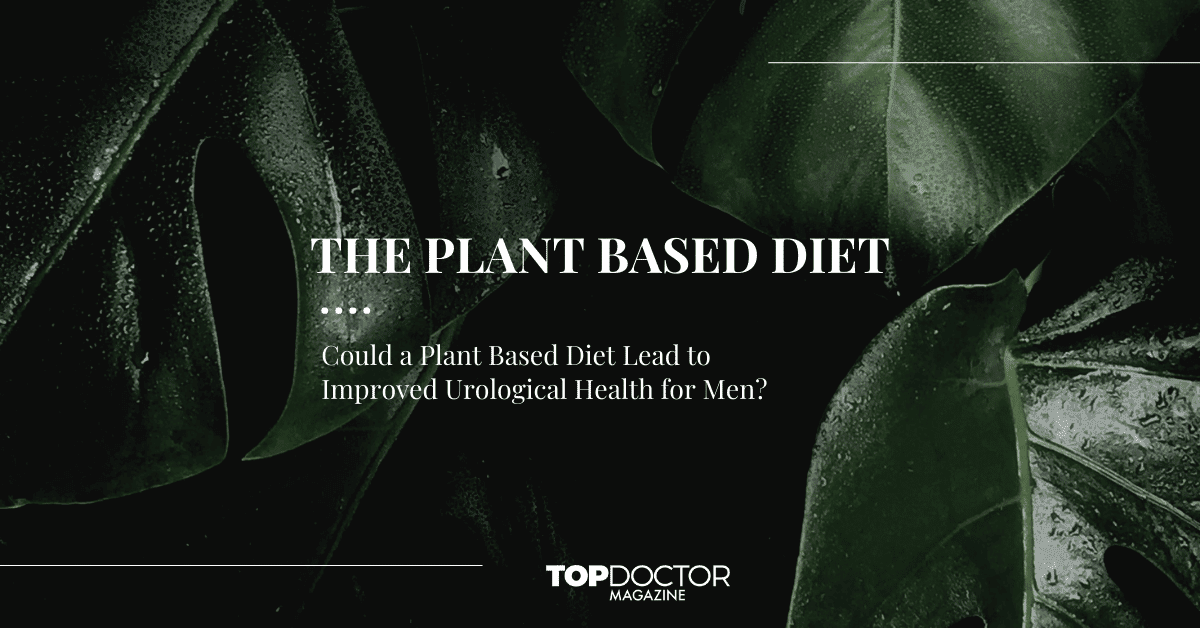Men interested in preserving their urological health may benefit from eating more vegetables and fruits, researchers reported. Statistics indicate approximately 30 million Americans suffer from erectile dysfunction. In 2019, the American Cancer Society estimated approximately 174,650 new cases of prostate cancer in men and around 31,500 cancer-related deaths. Stacy Loeb, a Professor of Urology and Population Health at NYU Langone Health and prostate cancer specialist, reported that risk factors, such as increased age, BMI, hypertension, diabetes and history of stroke, were strongly associated with ED risk.
A plant-based diet (PBD) can prevent and treat some of the causes of erectile dysfunction. Loeb noted that the environmental and health benefits of plant-based diets recommend them for men concerned about prostate cancer risks.
Bad Dietary Choices Associated with Prostate Cancer and Erectile Dysfunctions
Some foods are commonly associated with men’s urological issues. For Ali Mouzannar, MD,
“Meat is associated with a high rate of aggressive prostate cancer, and high risk of recurrence.”
Saturated fat and cholesterol found in animal-derived foods pose a risk for prostate cancer. Lower intakes of the most harmful components, including red or processed meat and trans fatty acids, were also associated with a lower risk of incident erectile dysfunction. Other risk factors include a higher intake of carcinogenic persistent organic pollutants that result from consuming cooked, fried or barbecued meats. In older men, reduced blood flow into the penis due to atherosclerotic lesions of the internal iliac, pudendal and cavernosal arteries is the most common cause of erectile dysfunction.
So slow it down on the bacon and eggs! Red and processed meats are associated with an increased risk for prostate cancer, and studies have found that men who already have prostate cancer and eat eggs, poultry and processed red meat increase their risk of death.
Other foods to be on the lookout for include milk and dairy products, linked to an increased prostate cancer risk due to the hormone insulin-like growth factor (IGF-1), saturated fat, dairy calcium and protein. Men who consumed three or more servings of dairy products a day had a 141% higher risk for death due to prostate cancer than those who consumed less than one serving.
However, soy milk has shown to be beneficial for the prostate! An analysis of 14 studies showed that increased intake of non-fermented soy products, such as soy milk, resulted in a 30% reduction in prostate cancer risk!
Switching to a Plant-based Diet
There are many advantages to plant-based diets. Plant-based diets were associated with a decreased risk of erectile dysfunction (ED), lower PSA rates and possibly a lower rate of total and fatal prostate cancer among younger men. In a study of 47,239 men, those in the highest quintile of overall plant-based food consumption had a significant 19% decreased risk of dying from prostate cancer and a nonsignificant 22% and 17% decreased risk for advanced and lethal prostate cancer.
The risk of prostate cancer in vegetarians is less than half of nonvegetarians. While plant-based foods have been shown to decrease the risk of prostate cancer, animal-derived foods increase the risk in a dose-dependent manner. As an overall dietary pattern, the risk of prostate cancer was 54% greater in the nonvegetarians (P=0.03) than vegetarians. Lycopene, the bright red pigment found in tomatoes, watermelon, red bell peppers and pink grapefruit, is especially beneficial in protecting against prostate cancer. Men who consume two or more servings of tomato sauce per week have a 23% less risk of prostate cancer than those with tomato sauce less than once per month.
What Should the Diet Contain?
This dietary pattern includes a diet rich in fruits and vegetables and eliminates animal-derived saturated fats cooked meats. Healthy plant-based foods include whole grains, fruits, vegetables, nuts, legumes, vegetable oils, tea and coffee. Cruciferous vegetables, such as broccoli, brussels sprouts, cauliflower, etc., and green tea, tomato sauce and allium vegetables (onions, garlic and scallions) are vital to this diet. Erectile function can also improve after consuming a Mediterranean diet rich in plant-based foods, olive oil, nuts and fish.
It is fascinating to examine studies on the effect of nuts since some plant-based dietary patterns encourage nuts while others avoid them. One study investigated the effects of pistachio nuts on International Index of Erectile Function (IIEF) scores. To evaluate the influence of nuts on erectile function, participants answered the 15 questions contained in the validated IIEF at baseline and the end of the intervention. Compared to the control group, the international index of erectile function (IIEF) saw a significant increase in orgasmic function and sexual desire in the nut-supplemented group during the intervention.
A Parting Reminder
Men interested in preserving their urological health may benefit from a plant-based diet. By cutting down on the meats and substituting them for healthier options like nuts, cruciferous vegetables and allium vegetables, men can lower their risk for erectile dysfunction and reduce the risk for prostate cancer.
“I see it as a win-win. There’s not really a downside here. You’re going to decrease your risk of aggressive prostate cancer and elevated PSA and increase your chances of preserving erectile function, and it’s just better for the planet as a whole,” Loeb said.
At TopDoctor Magazine, our mission is to foster connections within the health and wellness community, acting as a vital bridge between doctors and patients and facilitating collaborations between medical companies and healthcare professionals.
Our purpose extends to empowering our readers, providing them with the knowledge to make well-informed healthcare and lifestyle decisions.
We take pride in being the ultimate resource for interviews with health and wellness leaders, delivering trending medical news, and covering a wide range of healthy living topics.






0 Comments